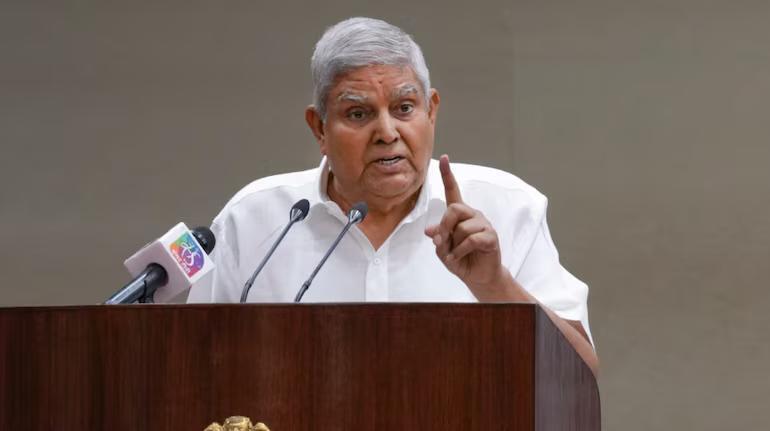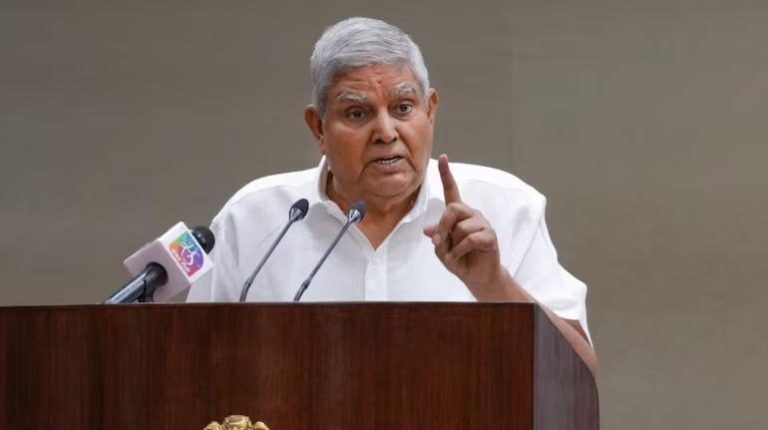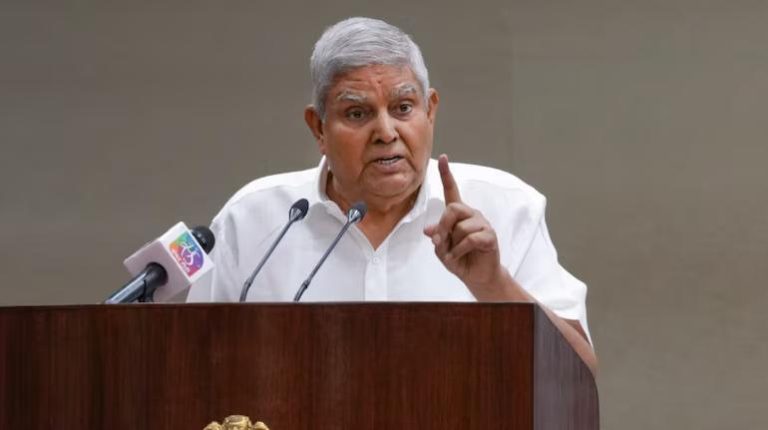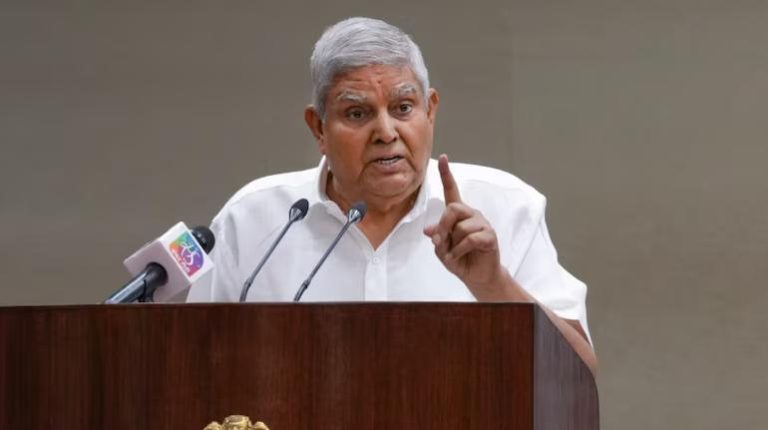
Terrorism is Global Menace: Vice President Dhankhar on J&K Attack
On Friday, a devastating terror attack in Pahalgam, Jammu and Kashmir, left at least 26 people dead and many more injured. The attack, which is being considered one of the deadliest in the region in recent years, has sent shockwaves across the country. In response to the attack, Vice President Jagdeep Dhankhar condemned the incident, terming it a “reminder that terrorism is a global menace.”
The Vice President’s statement came as a tribute to the innocent lives lost in the attack, and as a reaffirmation of the nation’s resolve to combat terrorism in all its forms. “I join the nation in expressing profound grief and outrage at the heinous attack in Pahalgam that claimed innocent lives,” said Dhankhar. “It is a reminder that terrorism is a global menace, and we must work together to eradicate it from our world.”
The Pahalgam attack, which was carried out by suspected terrorists, has sparked widespread outrage and condemnation across the country. The incident has also led to a renewed call for vigilance and cooperation among citizens, security forces, and the government to prevent such attacks in the future.
Terrorism, in its various forms, is a global menace that poses a significant threat to peace, stability, and security. It is a scourge that affects not just one country or region but has far-reaching consequences for the entire world. The Pahalgam attack is a stark reminder of the devastating impact that terrorism can have on innocent civilians, and the need for collective action to combat this menace.
In recent years, terrorism has become increasingly sophisticated, with attacks becoming more frequent and deadly. The rise of extremist groups and ideologies has contributed to the spread of terrorism, making it a global challenge that requires a coordinated response.
The Indian government has been at the forefront of the fight against terrorism, both domestically and internationally. The country has suffered numerous terror attacks in the past, including the 2008 Mumbai attacks, the 2011 Delhi bombing, and the 2016 Uri attack. In response to these attacks, the government has taken several measures to strengthen its counter-terrorism capabilities, including the creation of specialized agencies and the implementation of stricter security measures.
Despite these efforts, terrorism remains a significant threat to India’s national security. The country’s borders with Pakistan and Afghanistan have been identified as major flashpoints for terrorist activity, and the government has taken several measures to strengthen its border security and intelligence gathering capabilities.
In addition to its domestic efforts, India has also been actively engaged in international efforts to combat terrorism. The country has been a key player in several regional and global initiatives aimed at combating terrorism, including the South Asian Association for Regional Cooperation (SAARC) and the United Nations (UN).
The Pahalgam attack is a stark reminder of the need for continued cooperation and coordination among countries to combat terrorism. It is a global problem that requires a global response, and India’s efforts to combat terrorism are part of a broader international effort to eradicate this menace.
In conclusion, the Pahalgam attack is a tragic reminder of the devastating impact that terrorism can have on innocent civilians. As Vice President Dhankhar said, terrorism is a global menace that requires a collective response. India’s efforts to combat terrorism are part of a broader international effort to eradicate this scourge, and the country’s determination to continue fighting against terrorism is a testament to its commitment to peace, stability, and security.




